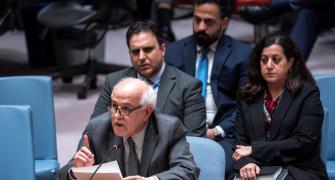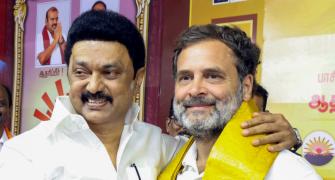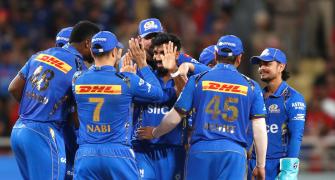The Telecom Regulatory Authority of India (Trai) chairman J S Sarma said his recommendation to tweak the existing norms for mergers and acquisitions aims to prevent the union of two big companies or a big and a medium-sized operator, but it provides enough scope for mergers between others.
"What we have prevented is that the big telcos do not merge with each other or a big telco merges with another telco which is of moderate size," Sarma told Business Standard. "What it means is that Vodafone cannot merge with Airtel. Our expectation is that even after consolidation, there should be at least six players. However, the rules allow mergers between two moderately sized companies, one big and another small company and also two small companies."
Sarma has been under fire from telecom operators since Tuesday, when he proposed the new rules on mergers and acquisitions and also a one-time fee on operators to keep the excess spectrum. The Trai chief had suggested a merged entity not have more than 30 per cent market share in terms of subscriber numbers. Currently, the cap is 40 per cent. Operators say this move would reduce the scope of consolidation in the industry.
The chief telecom regulator said assuming there are six players in a circle, under the current norms if one of them enjoys 40 per cent of the market share, the other five are left with only 60 per cent of the market to share among themselves. This works out to an average of 12 per cent. But, if the cap on market share is brought down to 30 per cent, the other five players could have a bigger share of the remaining market. This will reduce the dominance of the bigger player in a circle and, hence, benefit the consumers, Sarma said.
"Under the current norms, the leader in the market with 40 per cent would have had three times more subscriber base than his rivals and that could lead to domination of the market. Based on our recommendation, he will have only double the subscriber base," Sarma said.
He said Trai took the decision after collecting data to study the impact of the 30 per cent rule in each circle and it found only big companies would not be able to merge. In Delhi, of the 146 combinations of a merger possible, only 20 combinations would go over the 30 per cent mark. A company like Bharti Airtel can merge with seven out of the 12 companies that operate in Delhi without breaking the market share barrier. It cannot, however, merge with Idea, MTNL, Reliance, Tata and Vodafone but can go for a merger with Uninor, Etilasat, Videocon, Sistema among others.
In Mumbai, out of 96 combinations for merger, only 22 would not meet the new norms. Vodafone, for instance, can merge with eight out of the 12 companies who operate in the city. While it cannot merge with Airtel, MTNL, Reliance and the Tatas, it can merge with operators like Aircel, Idea, Uninor and Sistema.
In simple terms, a merger between Vodafone-Essar and Bharti Airtel is ruled out across any circle in the country. So is a merger between Airtel and Reliance Communications. However, most of the new licence holders such as Stel, Videocon, Loop, Sistema and Etliasat can merge with any of the larger players in most circles.
On the criticism of his proposal to charge operators a one-time fee for the excess spectrum they control, Sarma said a final decision has not yet been taken. "We will be consulting 10 technical experts. They will decide whether 2G operators should pay at a discount from the 3G price. We are aware that the prices of 3G are going up and up. Some think 2G and 3G should be paid similarly, others think 3G can accommodate more subscribers per spectrum. We hope the recommendations would come by June end. So there should not be any anxiety."
Sarma said according to their calculation, the operators would have to pay a one-time fee of Rs 14,557 crore for the excess spectrum. "That is equivalent to just one block of 3G spectrum and will surely not impact tariffs, which are a function of competition." Operators should not find this fee excessive when they are considering such high 3G bids as viable, he added.
However, Sarma made it clear that re-farming of spectrum in the 900 MHz band is essential as the government can earn huge revenues by auctioning this spectrum for 3G or 4G. "Nearly 88 per cent of the 20 MHz available in the 900 Mhz band is with three operators. This is enough spectrum for four 3G operators and the government could make over Rs 60,000 crore. How can this be given free to them?" Sarma asked. "Also we are giving them time. We will do it only when their licences come for renewal, which is at least five years away."
Sarma, however, added that he was open to giving a compensation to the operators while re-farming their spectrum to 1800 MHz, which they may require to realign their equipment.










